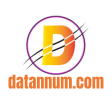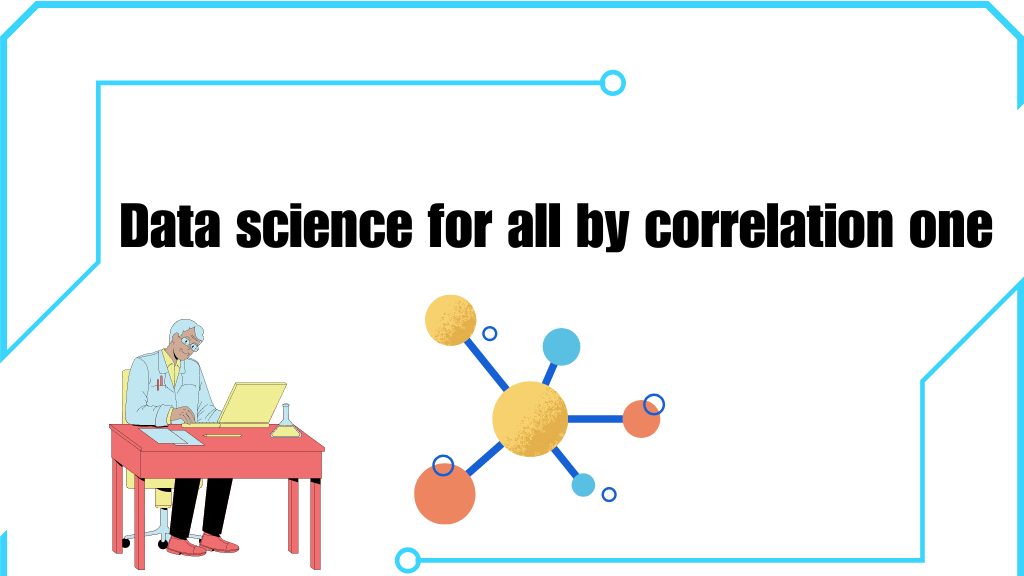Data science for all by correlation one data is often likened to oil, a precious resource that powers innovation and drives decisions. However, unlike oil, the value of data lies not in its raw form but in the insights and knowledge derived from it. This transformation of data into actionable insights is the realm of data science. With its potential to revolutionize industries, improve efficiency, and drive strategic decision-making, data science has become a critical skill in the contemporary job market. Recognizing this, Correlation One has pioneered “Data Science for All” (DS4A), an initiative aimed at democratizing data science education and fostering inclusivity in the tech industry.
The Essence of Data Science
Understanding Data Science
Data science is an interdisciplinary field that uses scientific methods, algorithms, and systems to extract knowledge and insights from structured and unstructured data. It encompasses a range of techniques from data mining, statistical analysis, and machine learning to complex data visualization and big data analytics.
Core Components of Data Science
- Data Collection and Storage: Gathering data from various sources, including databases, APIs, and real-time streams, and storing it in an accessible and manageable format.
- Data Cleaning and Preprocessing: Ensuring data quality by removing inaccuracies, handling missing values, and transforming data into a suitable format for analysis.
- Exploratory Data Analysis (EDA): Understanding the data through visualization and summary statistics to uncover initial patterns, trends, and relationships.
- Model Building: Using statistical models and machine learning algorithms to make predictions or classify data. This step often involves selecting the right model, training it on historical data, and tuning it for accuracy.
- Model Evaluation and Validation: Assessing the model’s performance using metrics such as accuracy, precision, recall, and F1 score to ensure it generalizes well to new, unseen data.
- Deployment and Monitoring: Implementing the model in a production environment and continuously monitoring its performance to ensure it remains accurate and relevant.
The Growing Demand for Data Scientists
The demand for data scientists has surged as organizations recognize the value of data-driven decision-making. Industries ranging from finance and healthcare to retail and transportation are leveraging data science to optimize operations, enhance customer experiences, and drive innovation. However, the rapid growth in demand has led to a significant skills gap, with many positions remaining unfilled due to a lack of qualified candidates.
Correlation One’s Vision: Data Science for All
The Mission
Correlation One’s DS4A initiative aims to bridge the skills gap by providing high-quality data science education to diverse and underrepresented groups. Their mission is to create a more inclusive and equitable tech industry where everyone, regardless of their background, has the opportunity to thrive.
Key Features of DS4A
- Accessible Education: DS4A offers free data science training programs, making education accessible to individuals who might otherwise be unable to afford it. This inclusivity ensures that talented individuals from all socioeconomic backgrounds can participate.
- Comprehensive Curriculum: The program covers a wide range of topics, from the fundamentals of data science to advanced machine learning techniques. It includes practical, hands-on projects that simulate real-world challenges, preparing participants for the demands of the job market.
- Expert Instructors: The courses are taught by experienced data scientists and industry professionals who provide mentorship and guidance. This ensures that participants receive the best possible education and can learn from the experiences of those already successful in the field.
- Diverse Community: DS4A fosters a supportive community of learners from diverse backgrounds. This network not only enhances the learning experience but also helps build connections that can lead to career opportunities.
- Career Support: Correlation One provides career support through resume workshops, interview preparation, and job placement assistance. This comprehensive approach ensures that graduates are well-prepared to enter the job market and succeed in their careers.
The Impact of Data Science for All
Transforming Lives
For many participants, DS4A is a life-changing opportunity. The skills acquired through the program open doors to high-paying, rewarding careers in data science and analytics. This transformation is particularly significant for individuals from underrepresented groups, who often face barriers to entering the tech industry.
Bridging the Skills Gap
By providing high-quality data science education to a diverse group of learners, DS4A is helping to bridge the skills gap that plagues the industry. Graduates of the program are equipped with the knowledge and skills needed to fill critical roles in organizations, driving innovation and growth.
Promoting Diversity and Inclusion
DS4A’s commitment to diversity and inclusion is helping to create a more equitable tech industry. By supporting underrepresented groups, the program is fostering a more diverse workforce that brings a range of perspectives and ideas to the table. This diversity is crucial for driving innovation and ensuring that the benefits of data science are shared by all.
Building a Sustainable Future
The impact of DS4A extends beyond individual participants. By democratizing data science education, Correlation One is contributing to a more sustainable future where data-driven decision-making is accessible to all. This, in turn, can lead to more efficient and effective solutions to some of the world’s most pressing challenges, from healthcare and education to climate change and social justice.
The DS4A Program: A Closer Look
Curriculum Overview
The DS4A curriculum is designed to provide a comprehensive education in data science, covering both foundational concepts and advanced techniques. Here is a closer look at some of the key components of the program:
Introduction to Data Science
- Overview of Data Science: Understanding the field of data science, its importance, and its applications across various industries.
- Python Programming: Learning the basics of Python, the primary programming language used in data science, including data types, control structures, and libraries like NumPy and Pandas.
Data Wrangling and Preprocessing
- Data Cleaning: Techniques for handling missing values, removing duplicates, and correcting errors in data.
- Data Transformation: Methods for transforming data into a suitable format for analysis, including scaling, normalization, and encoding categorical variables.
Exploratory Data Analysis (EDA)
- Data Visualization: Using libraries like Matplotlib and Seaborn to create visualizations that help uncover patterns and insights in the data.
- Summary Statistics: Calculating and interpreting summary statistics, such as mean, median, variance, and standard deviation, to understand the distribution of data.
Statistical Analysis
- Hypothesis Testing: Understanding the principles of hypothesis testing and performing tests like t-tests and chi-square tests.
- Regression Analysis: Building and interpreting linear regression models to understand relationships between variables.
Machine Learning
- Supervised Learning: Introduction to supervised learning algorithms, including decision trees, support vector machines, and neural networks.
- Unsupervised Learning: Exploring unsupervised learning techniques, such as clustering and dimensionality reduction.
- Model Evaluation: Techniques for evaluating the performance of machine learning models, including cross-validation and confusion matrices.
Advanced Topics
- Deep Learning: Understanding the basics of deep learning and working with frameworks like TensorFlow and Keras.
- Natural Language Processing (NLP): Techniques for analyzing and understanding text data, including sentiment analysis and topic modeling.
- Big Data: Introduction to big data technologies, such as Hadoop and Spark, and techniques for handling large-scale data.
Hands-On Projects
One of the key features of the DS4A program is its emphasis on hands-on learning. Participants work on real-world projects that allow them to apply the concepts and techniques they have learned. These projects simulate the challenges and complexities of real-world data science problems, providing valuable experience that prepares participants for the job market.
Capstone Project
The program culminates in a capstone project, where participants work in teams to solve a complex data science problem. This project is an opportunity to showcase their skills and demonstrate their ability to tackle real-world challenges. It also serves as a portfolio piece that can be presented to potential employers.
Success Stories: Real-World Impact
Empowering Individuals
Many participants in the DS4A program have gone on to achieve remarkable success in their careers. Here are a few examples:
- Maria Lopez: A single mother from a low-income background, Maria joined the DS4A program with little prior experience in data science. Through hard work and determination, she excelled in the program and landed a job as a data analyst at a major tech company. Today, Maria is a senior data scientist, leading projects that drive significant value for her organization.
- John Kim: John, a recent college graduate, struggled to find a job in his field due to a lack of practical experience. After completing the DS4A program, he was able to secure a position as a machine learning engineer. His work on developing predictive models has earned him recognition and several promotions.
Driving Organizational Success
The impact of DS4A extends beyond individual participants to the organizations that hire them. Companies that employ DS4A graduates benefit from their diverse perspectives and advanced skills. These employees bring fresh ideas and innovative solutions that drive business success.
Community and Network Building
DS4A fosters a strong sense of community among its participants. Graduates become part of a supportive network of data science professionals who continue to share knowledge, collaborate on projects, and support each other’s career growth. This network is a valuable resource that extends the benefits of the program long after its completion.
The Future of Data Science for All
Expanding Reach and Impact
Correlation One is committed to expanding the reach and impact of the DS4A program. By partnering with organizations, educational institutions, and government agencies, they aim to provide data science education to even more individuals, particularly those in underserved communities.
Adapting to Industry Needs
As the field of data science evolves, so too does the DS4A curriculum. Correlation One continuously updates the program to reflect the latest advancements and industry trends. This ensures that participants are learning the most relevant and up-to-date skills, making them highly competitive in the job market.
Promoting Lifelong Learning
The DS4A program encourages a mindset of lifelong learning. Participants are taught not only the technical skills needed for data science but also the importance of continuous education and professional development. This approach ensures that graduates remain adaptable and resilient in the face of an ever-changing industry.
“Data Science for All” by Correlation One is more than just an educational program; it is a transformative initiative that is changing lives, bridging the skills gap, and promoting diversity and inclusion in the tech industry. By providing accessible, high-quality education and comprehensive career support, DS4A is empowering individuals to succeed in data science careers and driving innovation in organizations around the world. As the program continues to grow and evolve, its impact will undoubtedly continue to expand, creating a more equitable and data-driven future for all.


3 thoughts on “Data science for all by correlation one”